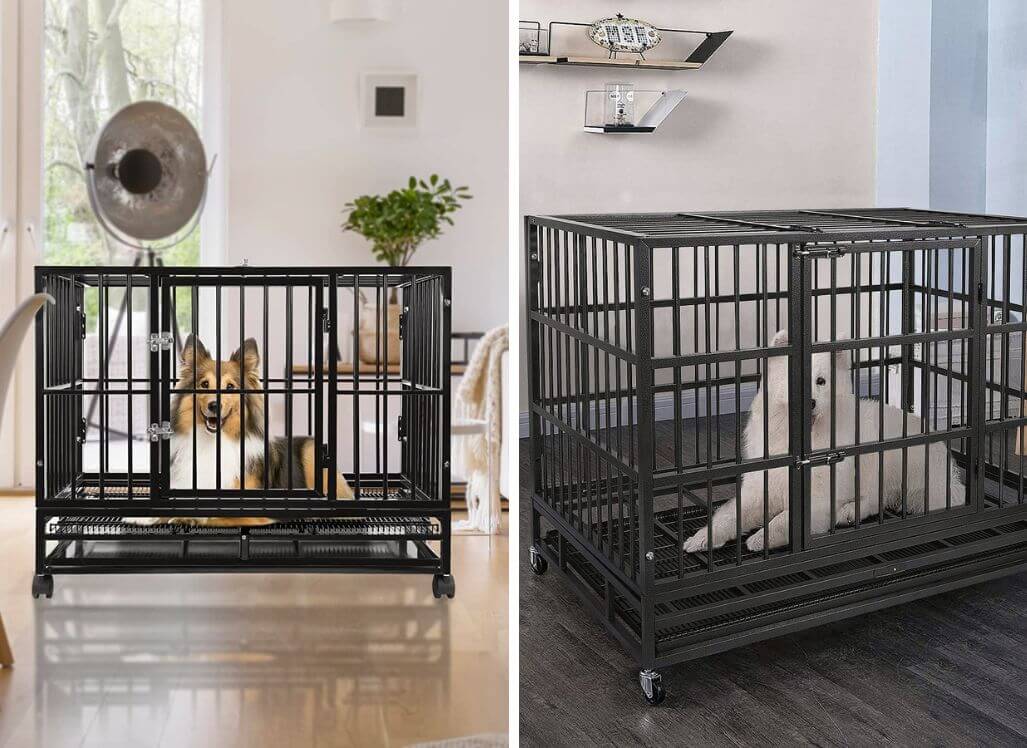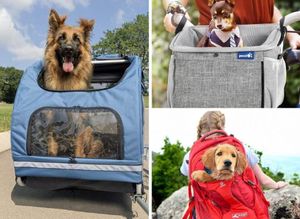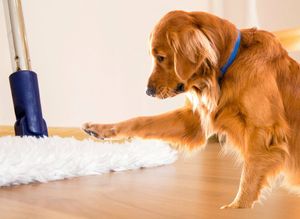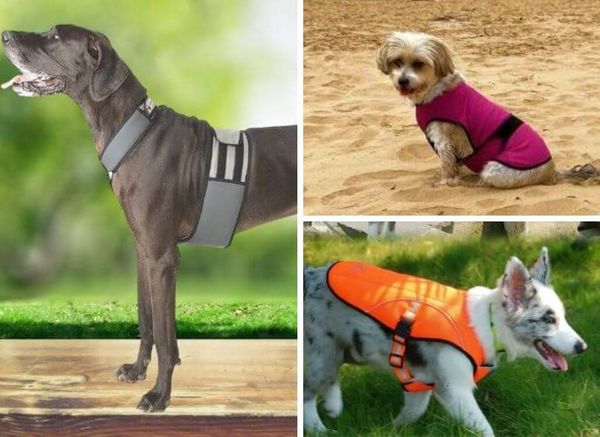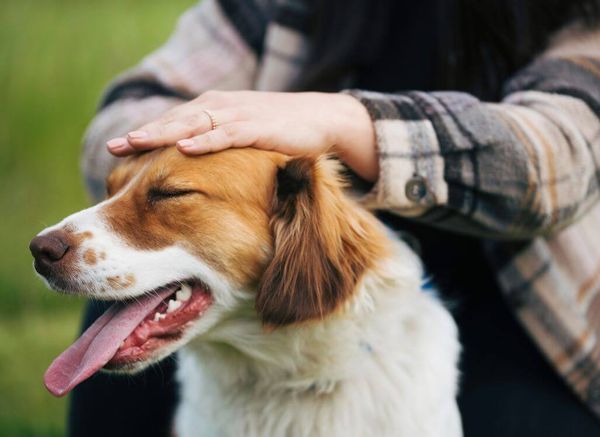When it comes to helping our dogs manage their anxiety, one of the most popular methods is using a dog crate. A good quality dog crate can provide a safe, comfortable environment for your pet and give them a sense of security.
But with so many different types of crates on the market, selecting the right one for your anxious pup can be overwhelming. To help you pick out the perfect crate for your dog's anxiety needs, here are some important considerations:
Security

When it comes to choosing a crate for your furry friend, it is essential to prioritize strength and security. An anxious dog could easily break out of a flimsy crate or chew it to pieces, which not only puts their safety at risk but could also result in damaged property.
You need a crate that you can rely on, one that can withstand even the most determined and persistent of escape artists. That's why it's worth taking the time to carefully consider your options and invest in a sturdy, reliable crate with strong locks that your dog won't be able to figure out how to unlock.
Durability
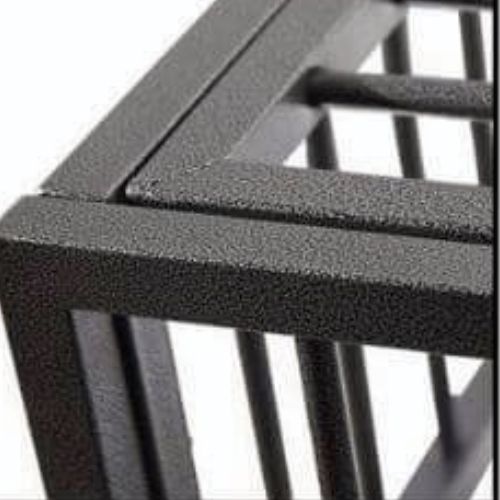
When it comes to choosing a dog crate, durability is important, but there's one thing that should take precedence above all else - chew resistance. If your furry companion is a bit anxious and is closed inside a crate, the last thing you want is for him to chew his way out. This could lead to a variety of problems, including escape or injury.
While fabric or plastic crates may be tempting because of their affordability, they simply won't cut it if you have an eager chewer on your hands. It's much better to opt for heavy-duty metal crates that can withstand the bite of a determined dog. You should also ensure that the coating is safe and non-toxic.
In the long run, investing in a sturdy and chew-resistant crate will provide you with greater peace of mind and keep your pup safe and secure.
Cave-like Atmosphere
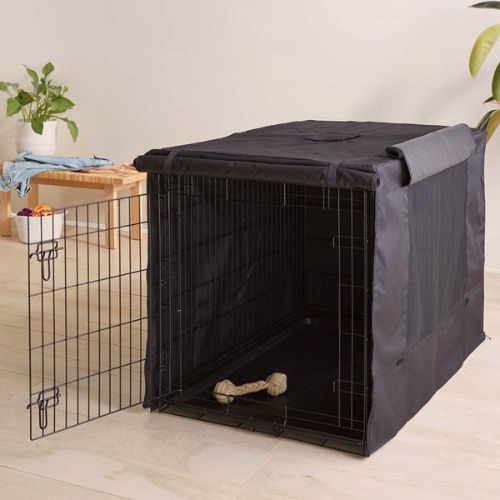
When it comes to crate training your furry friend, providing them with a comfortable and cozy space is essential. Creating a den-like environment can be a great way to offer a safe retreat and help alleviate anxiety.
If you opt for a metal crate, be sure to invest in a crate cover to provide that extra privacy that they crave. This way, they'll feel secure and content inside their crate.
Material
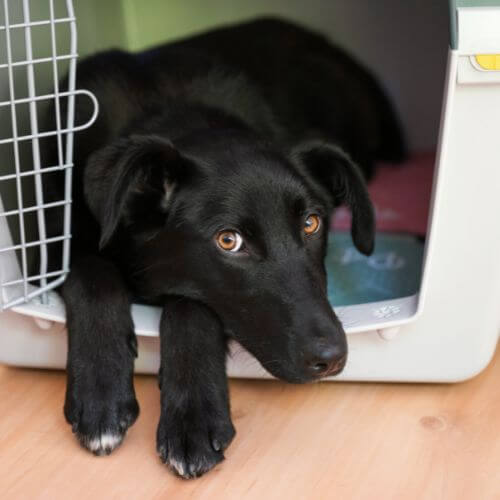
Dog crates typically come in plastic, fabric materials, wire mesh, or metal bars. Each type offers its own benefits and drawbacks- plastic crates provide more privacy to help with anxiety but may not be very breathable; wire mesh crates and metal offer plenty of visibility and ventilation but may be too open for anxious dogs; and fabric crates are lightweight and collapsible but lack ventilation holes which could suffocate your pup in warmer weather. It’s important to think about what kind of material would work best for your pup before making a purchase.
Size
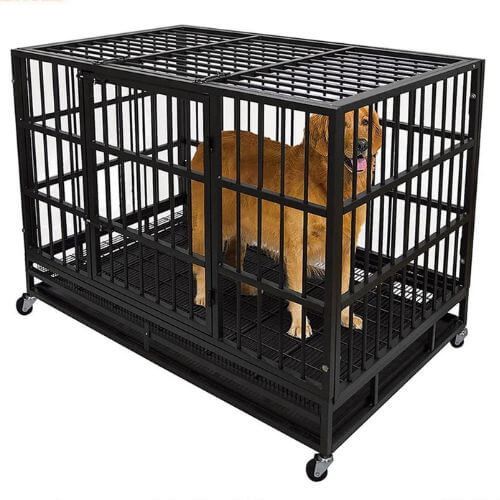
Your dog must have enough room in their crate to move around comfortably while they're contained. It is essential to find one that provides them with the perfect balance of comfort and security. To do so, take measurements of their nose-to-tail length as well as floor-to-head height while standing, then add 4" - 6” to these dimensions in order to determine an appropriately sized crate. This way you are sure they can stand up, turn around and relax comfortably inside without sacrificing its den-like atmosphere.
You should also consider getting a larger size if they are still growing, as they may need more space over time. Consider the breed of your dog, and their size when fully grown.
Access

Not only are there different styles and sizes of crates to choose from, but the access options can vary as well. Many crates have just one door in the front, but others have multiple doors or even a top access point. This top door can be especially useful if you want to interact with your dog while they're still in the crate, whether it's to give them a treat or just a little bit of affection.
When selecting the door that will be your pup's main entry, size matters. Ensure they can walk in and out effortlessly for their convenience. Considering your individual needs and your dog's preferences can help you find the ideal crate that will keep them safe, comfortable, and happy.
Cleaning

Another essential factor when deciding on the appropriate crate for your pup is how quickly, and conveniently it can be cleaned. Whether your furry friend's crate is made of mesh or plastic, you should be able to maintain its cleanliness without too much trouble.
Many crates are equipped with mesh floors, allowing messes to effortlessly trickle down into easily removable trays for convenient cleaning. Plastic crate can be quickly wiped down with a damp cloth or disinfectant.
Bedding can add an extra degree of comfort, but be sure to choose washable options or ones with removable covers that make clean-up a breeze. By following these tips, you'll have a clean and welcoming space for your dog to rest whenever they need it.
Conclusion
Overall, choosing the right dog crate for anxiety management is an important part of helping our pups feel secure and safe while we're away or at night while they sleep. With these considerations in mind as well as good research on specific models available today — you'll have no problem finding a great solution for tackling anxiety issues with your pup!
